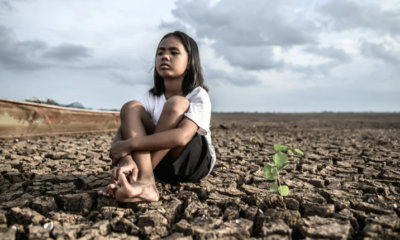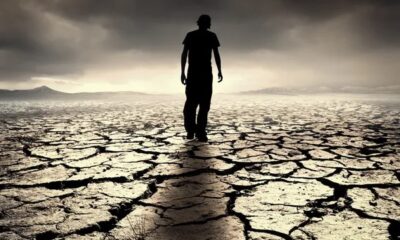Cop27
Climate Change in Africa

By Muhammad Amer
Despite its low contribution to the worldwide aggregated greenhouse gas emissions, Africa remains the most vulnerable continent and the most negatively affected.
History has not been fair to the African continent since the Industrial Revolution in Europe, which turned the world’s attraction towards the only continent with untouched treasures and wonders: Africa. Severely affected by many negative practices across the years, Africa has never got the chance to be up to the new industrial reality. Instead, it remained merely an agricultural and tropical land, which may, however, have a positive impact on the continent at present and in the future.
The world now is rallying toward the ultimate goal of decreasing the global warming temperature to 1.5 Celsius and collecting funds for the sake of compensating for the “loss and damage” that resulted from the recent unprecedented global warming. It is worth mentioning, nevertheless, that Africa, the least contributor to such a tragedy, is the one that deserves the hugest sum of such funding and compensation. Composed of 54 countries, Africa accounts for only 3.8 percent of the world’s emissions of CO2 from fossil fuels and industry in 2022, and its share of the worldwide CO2 has not exceeded 3.85 percent in the last twenty years—the smallest share among all world regions.
Despite these figures, Africa faces unprecedented collateral damage, which poses huge risks to its economic systems, infrastructure investments, water and food resources, public health, agriculture, and livelihoods. These risks surely threaten to break its developmental efforts and push it into higher levels of poverty and hunger.
Furthermore, when mentioning the UN 2030 Agenda signed and adopted by most world countries, including all African countries, in 2015, the agenda’s expression “Leave no one behind” surely applies to Africa due to the negative impacts of climate change on the continent. Droughts, deforestation, desertification, and extreme summer seasons are only examples of these negative impacts imposed on African countries that now call for their own place in worldwide discussions and talks regarding climate action.
In the meanwhile, there is news of detailed agendas and projects provided by African leaders and environmentalists at roundtables in COP27 in Egypt. The whole world seems to be finally awake from a long nap and looks for loss-and-damage-based solutions to the whole world with a specific focus on Africa which has suffered the most.
COP27 shall remain a valid opportunity for a better future for the African people and the world only if there is a political will to agree on a multilateral commitment to level up actions and act in a bolder way for the sake of alleviating the suffering of the most vulnerable.
Share












